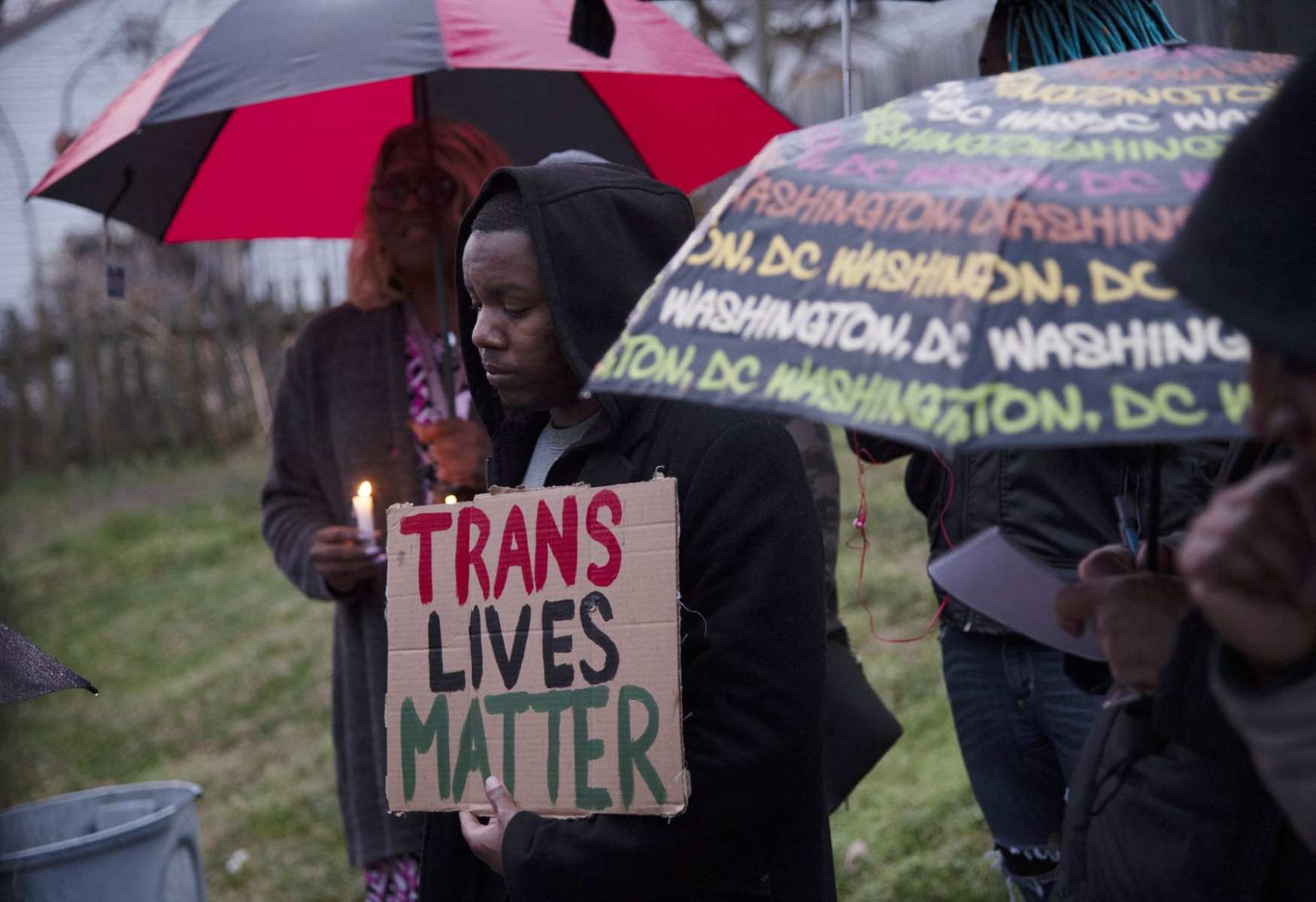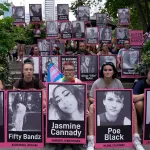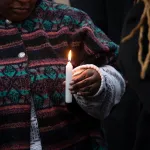There are two numbers transgender advocates reluctantly track year-over-year. The first is the number of anti-trans bills pending in statehouses. The second — a tally of the dead.
But as the nation fixates on anti-trans bills, the number of trans homicides is poised to more than double this year from 2020, which was already the deadliest year on record. There’s a reason for that, advocates say. The bills are fueling a deadly stigma.
Victoria Kirby York, deputy executive director of the National Black Justice Coalition, says people are getting messages that trans people are “less than,” and that it’s OK to treat them inhumanely.
“Oh, well, you know, this person is trans; they don’t really count,” Kirby York said of that inner-dialogue. “I can do whatever, nothing’s going to happen. Even our government doesn’t like them.”
By mid-April of last year, advocates had tracked six transgender murders. This year, that number is up to 14, the Human Rights Campaign reports. The victims are overwhelmingly transgender women of color, eight of them Black trans women. LGBTQ+ advocates say that the coronavirus pandemic and the spate of anti-trans bills have pushed a population already facing a crisis of violence to the brink.
Eliel Cruz, director of communications for the New York City Anti-Violence Project, has watched year after year as reports of trans homicides rise. In 2017, his organization reported the deadliest year ever, with 27 trans people murdered. Last year, that number hit 44.
Advocates like Cruz suspect that’s because transgender people continue to disproportionately face joblessness, homelessness, and lack of access to food and health care in the pandemic. Transgender people who don’t have gender-affirming medical care may seek transition-related hormones on the street or turn to sex work to fund that care or survive, further putting them at risk. Transgender people are three times more likely to face unemployment than their cisgender peers, according to the 2015 U.S. Transgender Survey by the National Center for Transgender Equality.
“Our gut is we know that violence just increases when people don’t have what they need,” Cruz said.
Trans advocates are also watching what they say is another related crisis: States across the nation are weighing bills that would limit the rights of transgender children, with local and national media debating the rights of trans Americans daily.
Alexandria Webb, a Black trans community organizer in Charlotte, North Carolina, feels those arguments are connected to the violence she sees in her own community. On March 22, lawmakers in her state introduced a bill that would bar transgender girls from playing with other girls in school sports.
Less than two weeks later, on Easter Sunday, 29-year-old Jaida Peterson, a Black transgender woman, was found shot to death in a hotel room in Charlotte. On Thursday, Charlotte-Mecklenburg Police spokesperson Rob Tufano reported that another trans woman had been murdered in a hotel room. Tufano said both women had been engaged in sex work.
“That’s gotten our attention, and it needs to get the attention of the community,” Tufano said. “The information that we want to land loud and clear — especially for our LGBTQ community, especially members of that community who engage in sex work — they have to know that there has probably arguably never been a more vulnerable time for them.”
They have to know that there has probably arguably never been a more vulnerable time for them.
Charlotte-Mecklenburg Police spokesperson Rob Tufano
“If you make it okay to commit violence, which is what they’re doing … that directly trickles down to the most underprivileged person, to the Black trans woman, and it results in her death,” Webb said.
Though Tufano did not mention the state’s anti-trans legislation, Webb sees the violence as sanctioned by her state’s lawmakers, who she says are sending messages that transgender people are unwanted and less than human.
LGBTQ+ advocates have argued that at least 127 anti-transgender bills introduced in statehouses have radically changed the climate in the nation by casting negativity on transgender lives. Casting public doubt on the womanhood of trans women and girls, can be deadly, they argue.
Before taking office, President Joe Biden vowed to tackle the epidemic of violence facing Black trans women. Part of that has meant tackling unemployment and housing discrimination, which place transgender people at greater risk of intimate partner violence and underground work.
Biden’s executive order enforcing LGBTQ+ employment protections granted by the Supreme Court last year takes aim at some of those disparities. The order has further galvanized anti-trans activists who claimed the move “erased” cisgender women. Advocates see the flurry of anti-trans bills as a partial reaction to the order.
The administration has not laid out any other specific plans for addressing anti-trans violence, and the White House did not respond to a request to comment further.
Transgender advocates say that just tracking the flood of anti-trans bills is exhausting. Expecting the media to accurately report on trans homicides, to get names and pronouns correct (even law enforcement misgenders victims), on top of an avalanche of anti-trans legislation is becoming a big ask.
“I think that journalists would like to cover a lot of things, but they don’t have the capacity to,” Cruz said.
Still, Webb has watched news outlets publish story after story about a couple in North Carolina, turned away from a wedding venue because they are gay. Meanwhile, she is mourning Peterson.
“I’m just sitting here, like, we have a Black trans woman who was literally murdered in a hotel room and is about to be buried in an unmarked planters’ grave out in the middle of the field because we as a community can’t raise $2,000,” she said.
Who will tell that story over and over? She will.






